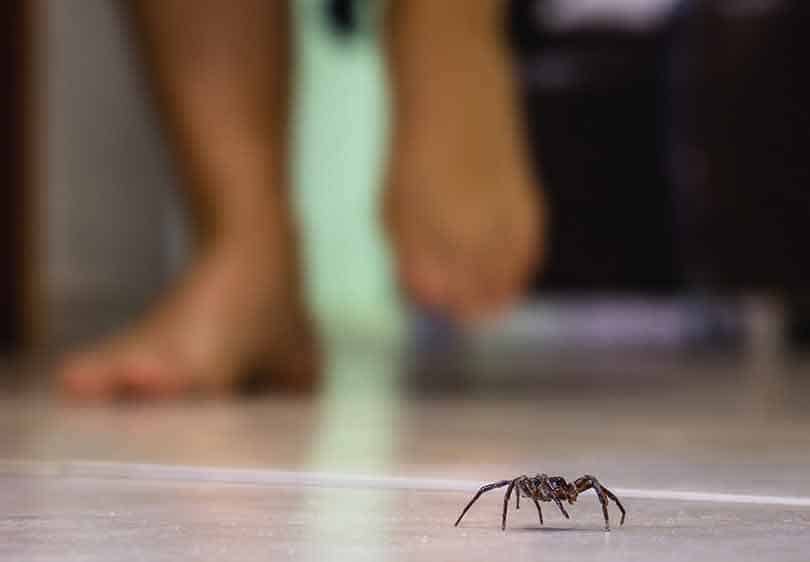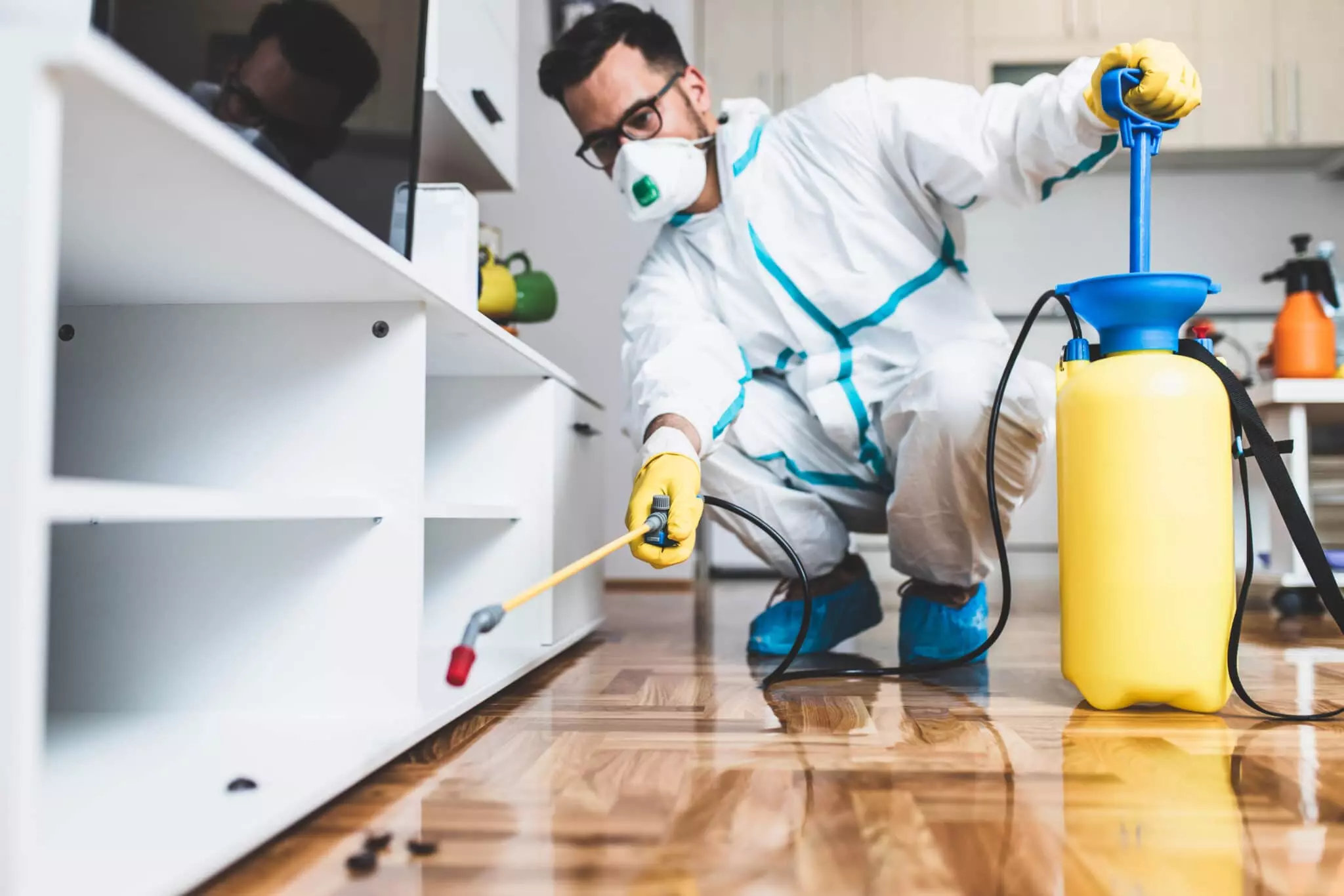Rest Easy with Orem Pest Control: Reliable Defense Against Pest Intrusions
Rest Easy with Orem Pest Control: Reliable Defense Against Pest Intrusions
Blog Article
Uncovering the Various Kinds Of Insect Control Techniques and Their Applications
Parasite control is an essential aspect of keeping a secure and healthy and balanced environment, whether it be in residential, industrial, or farming settings. From chemical techniques that target certain pests to biological techniques that harness all-natural predators, the world of bug control is varied and large.
Chemical Parasite Control Strategies
Chemical bug control techniques are widely used in farming and parasite monitoring to properly get rid of or manage pest infestations. These methods include using chemical substances, such as herbicides, chemicals, and insecticides, to eliminate or lower pest populaces that posture a threat to plants, livestock, or human wellness. Pesticides, for instance, target particular pests like weeds, bugs, or rats, disrupting their life cycles or causing direct damage upon get in touch with. Herbicides are especially made to control undesirable vegetation that takes on plants for sources and nutrients. Insecticides, on the various other hand, are used to fight insect pests that can harm plants and transmit diseases.
While chemical bug control strategies can be extremely efficient in managing bug populaces, they also raise worries about potential environmental and wellness risks. It is vital to adhere to safety and security guidelines, make use of integrated pest administration strategies, and think about different methods to decrease the adverse influences of chemical bug control techniques.
Biological Bug Control Techniques
 Organic parasite control techniques use living microorganisms to lower and manage pest populations in a lasting and eco friendly fashion. One usual approach is the launch of ladybugs to combat aphids in gardens, as ladybugs are all-natural killers of these harmful insects.
Organic parasite control techniques use living microorganisms to lower and manage pest populations in a lasting and eco friendly fashion. One usual approach is the launch of ladybugs to combat aphids in gardens, as ladybugs are all-natural killers of these harmful insects.
Organic pest control methods supply several benefits over chemical approaches. They are normally much safer for the environment, as they do not leave harmful residues or contribute to pollution. In addition, these approaches are usually extra targeted, impacting only the parasite types without hurting various other microorganisms or useful insects. Organic control can be a lasting remedy, as the presented microorganisms can establish lasting populaces and provide recurring insect monitoring. Overall, organic bug control approaches present a natural and effective choice to typical chemical treatments, advertising a balanced environment and healthier environments.
Physical Bug Control Approaches
Using physical approaches to manage pests entails the use of non-chemical or mechanical means to handle and reduce pest infestations effectively. One typical physical pest control technique is the installment of internet, screens, or fences to obstruct pests from getting in details locations.
One more physical technique is making use of catches, such as breeze traps for rodents or scent catches for bugs. These catches objective to catch parasites without posturing any kind of risk to human beings or the setting. In addition, physical control techniques can consist of strategies like handpicking pests off plants, utilizing vacuum cleaner gadgets to eliminate pests, or employing warmth treatments to eradicate bed insects and other pests in plagued areas.
Integrated Parasite Administration Strategies
Executing an alternative approach to pest administration, Integrated Pest Monitoring (IPM) strategies aim to combine different reliable methods to regulate and protect against parasite infestations while reducing ecological effect and making sure sustainable parasite control methods. IPM involves the assimilation of numerous control approaches such as biological control, social methods, mechanical control, and the careful usage of pesticides.

Additionally, IPM highlights the importance of monitoring and assessing pest populations to identify the most proper control methods. By implementing IPM strategies, pest control initiatives end up being a lot more targeted and effective, lowering the risks related to extreme chemical usage and promoting long-lasting pest administration services.
Natural and Organic Insect Control Options

One preferred natural insect control method is neem oil, stemmed from the seeds of the neem tree, which functions as a repellent and disrupts the growth and growth of insects. Diatomaceous planet, an all-natural silica-based powder, is another effective natural bug control alternative that works by dehydrating bugs upon contact. By integrating organic and natural bug control options into bug management methods, people can effectively manage insects while lessening harm to the atmosphere and advertising lasting methods.
Final Thought
Finally, various parasite control methods browse this site such as chemical, organic, physical, incorporated bug management, and all-natural options are readily available for efficiently taking care of parasite problems. Each approach has its own benefits and applications relying on the sort of insect and the setting. By understanding the different sorts of insect control techniques and their applications, people can make educated choices on the most proper approach to control insects and safeguard their building.
Chemical pest control strategies are extensively made use of in agriculture and bug monitoring to successfully eliminate or regulate pest infestations - Orem Pest Control. Natural insect control approaches entail utilizing biological control representatives, such as killers or bloodsuckers, you can find out more to handle bug populaces. By including natural and all-natural bug control alternatives into parasite administration techniques, people can successfully regulate pests while reducing injury to the environment and promoting sustainable techniques
In final thought, different bug control techniques such as chemical, organic, physical, integrated parasite monitoring, and natural options are offered for effectively managing pest invasions. By understanding the various types of parasite control strategies and their applications, people can make educated choices on the most suitable approach to recommended you read manage bugs and safeguard their residential property.
Report this page